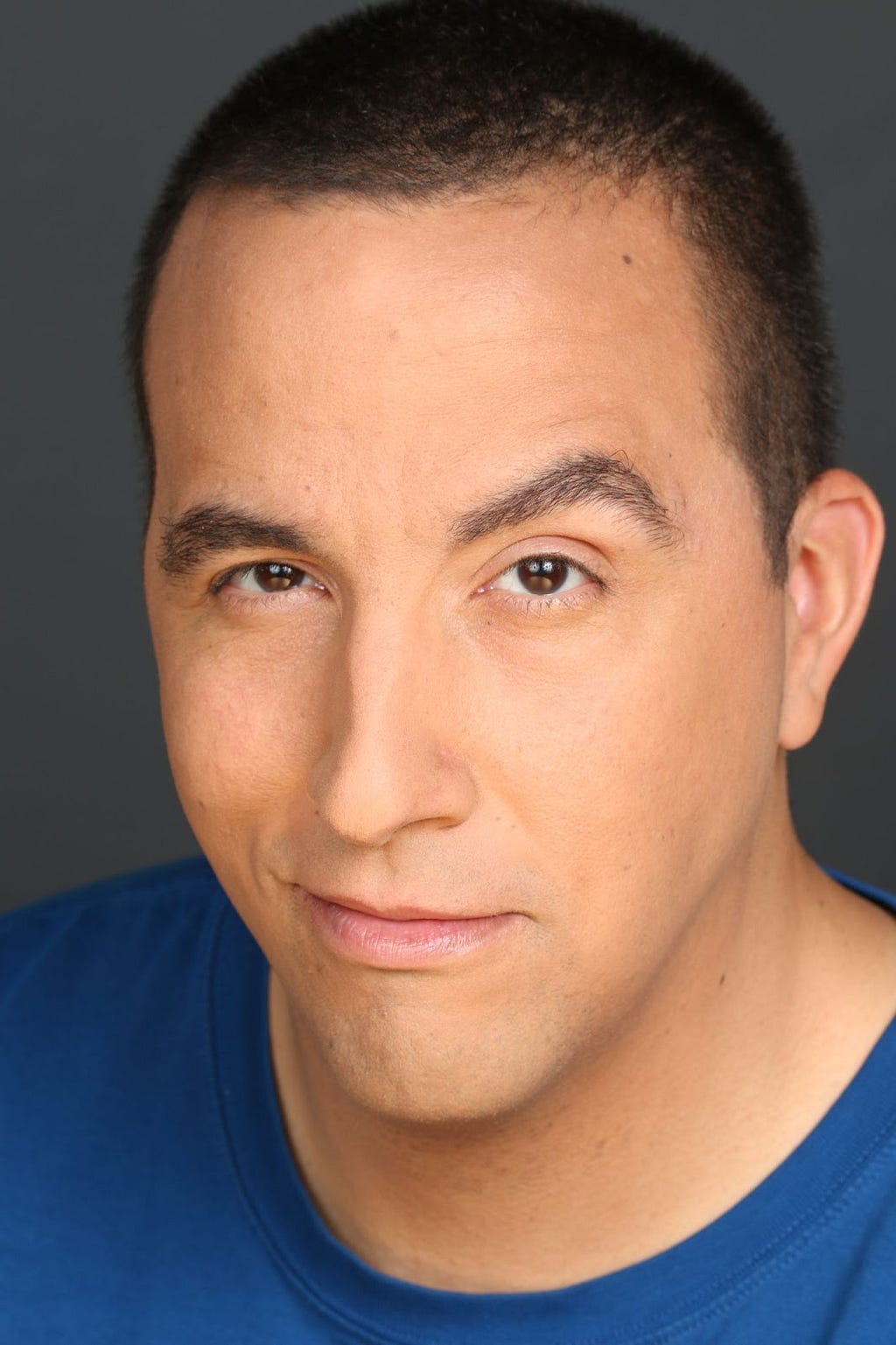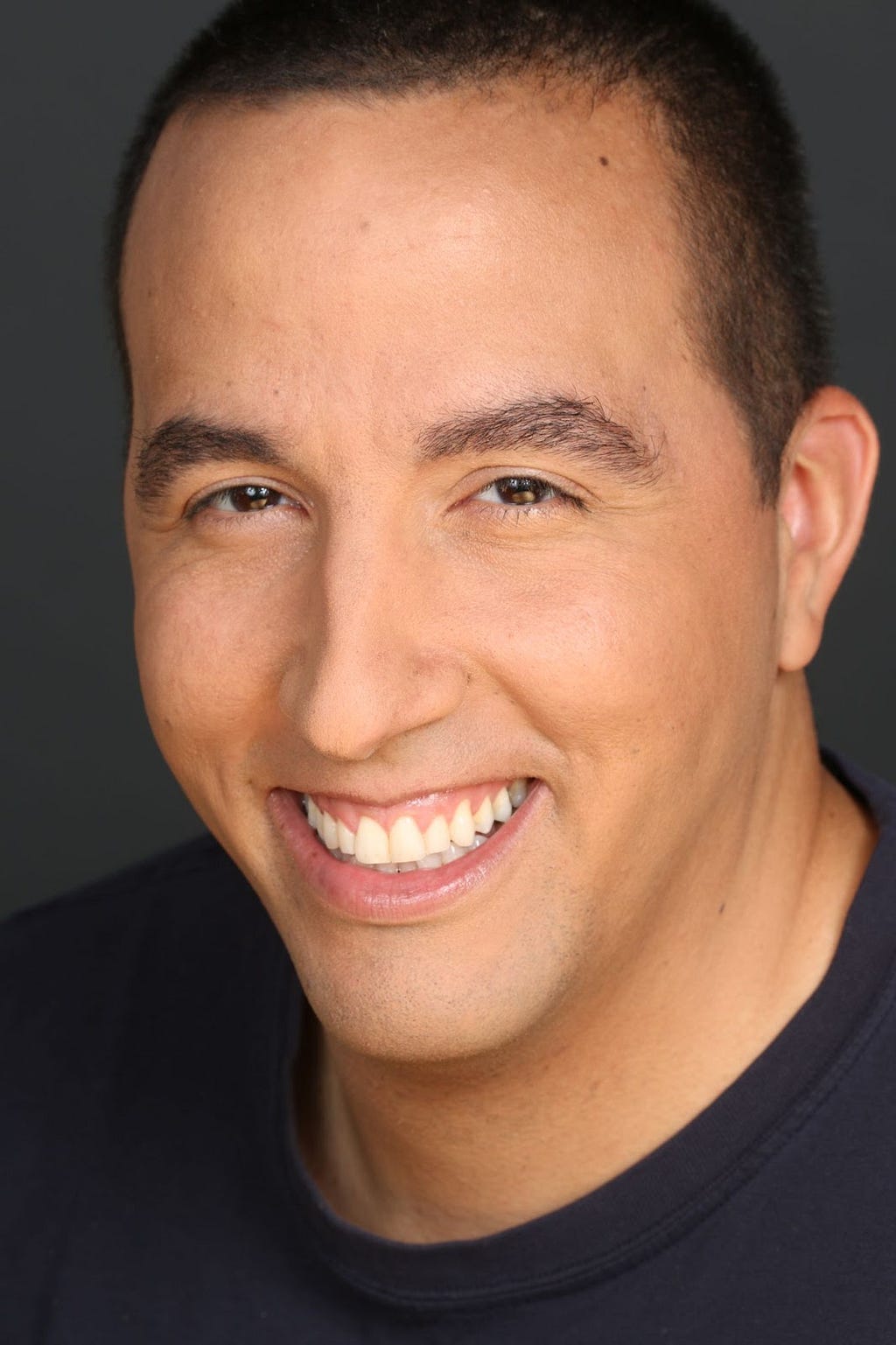
…Comedy or entertainment should never take precedence over the people in your life. I missed my father’s last birthday for a gig and realized too late that no amount of success is worth sacrificing relationships and personal moments…
I had the pleasure of talking to J-L Cauvin. J-L is a veteran stand-up comedian who became an Internet sensation in 2020 with over 30 million views of his impressions and sketch videos, led by Donald Trump. He has been seen and heard on The Late Late Show, Howard Stern, Marc Maron’s WTF podcast, The Adam Carolla Show, and ESPN radio. He has six stand-up albums to his credit, made his acting debut on the most recent season of Showtime’s Billions in 2021, and just recorded his first stand-up special in May of 2022. Check out more at JLCauvin.com .
Yitzi: Thank you so much for joining us in this series. Can you share the story about how you grew up and your origin story?
My father was a Haitian immigrant and my mother was Irish-American. I’m a native New Yorker. I got into many fights in elementary school. I went to Riverdale Country School in New York and I was academically perfect. They didn’t want to expel me, but they told my mom that I had to see a child psychologist to deal with my anger issues or else I would have to leave. This was around fourth grade. So, I started seeing a child psychologist. After two years, I was no longer getting into fights and was instead doing impressions and making jokes. In psychology, they call that sublimation. I took whatever aggression I had, speaking out or acting out, and turned it into verbal expression instead of physical. From that point on, comedy became an outlet for me. It became something that made me friends. I had no intention of pursuing comedy at all. I was a big fan, went to comedy clubs, and made my friends laugh, but I never thought “I could do this.”
But then, I went to Georgetown for law school. That was the first time I felt what could be categorized as depression. I was in a long-distance relationship and struggled academically for the first time. I felt like I needed a hobby or something to distract me. My then-girlfriend, a medical student in Ohio, suggested I see a therapist. I was hesitant, thinking, “I’m just bummed that law school’s hard; why do I need a therapist?” Instead, she called a priest at Georgetown to see me, which was like something out of “The Exorcist.” I had conversations with this priest, similar to therapy, and we would have lunch once in a while to talk through things. It got to a point where I thought I might need to find a hobby or something to distract me from the long-distance relationship and school difficulties.
So, after my second year, I went to my first open mic in Washington, D.C., and I liked it. That was over 19 years ago, and that’s how I got started with all this.
Yitzi: Can you share some of the funniest or most interesting stories that have happened so far in your career?
I started in 2003 by doing open mics and progressed fairly quickly. I made my late-night debut in 2007 on the Late Show with Craig Ferguson, where I had a fantastic set, an amazing feeling early in my career.
One of the worst stories in my comedy career happened about eight years ago in Chicago. I was having the best week of my comedy life when, between shows, a woman I had been involved with told me she had an affair with my good friend during our time apart. Shocked, I went back on stage and had the worst performance of my life. I was barely getting through my set when a woman threw a piece of fruit at me from her drink, and the club did nothing about it. The club owner, who hadn’t attended any of my shows that week, was there, and after the show, a waitress asked me what happened. It felt like everything was conspiring against me, a truly bizarre moment.
Ending on a good note, my career took an unexpected turn during the pandemic. I had been doing law part-time for ten years and just accepted a full-time job at a great law firm, thinking my comedy career was over. However, after posting a video impersonating Donald Trump, which I had been doing for four years, I went from getting 50 new Twitter followers to 40,000 and 20 million views across social media. This was a surprise since I had accepted my comedy career was a hobby by then.
It’s funny when people think I impersonated Trump to go viral. If I knew how to do that, I wouldn’t have waited until the last possible moment. The truth is, hard work and talent are only a small part of success; a lot of it comes down to luck. This explosion of attention was overwhelming but ultimately positive, leading to a better financial situation and a larger fan base.
Lastly, I’ll share a story about Neal Katyal, my law professor and former Deputy Solicitor General under Obama. As my comedy career struggled, I saw him making a cameo on House of Cards, advancing in the entertainment industry more than me. Later, I landed a role on Billions, only to find out he had also appeared on the show before me. It was a humorous realization that, despite my efforts in comedy, I was still trailing behind my professor in Hollywood.
Yitzi: It’s been said that our mistakes can be our greatest teachers. Do you have a story of a funny mistake you made when you first started and the lesson you learned from it?
Sure. What I’ve learned in comedy is to trust my instincts. My instincts, which are very skeptical of the business, have never really steered me wrong.
Here’s a great example. Many years ago, when I auditioned for Last Comic Standing, one of my favorite comics of all time, Greg Giraldo, was a judge. Giraldo is like the patron saint of lawyers turned comedians, being a Harvard-educated lawyer who became a well-known stand-up comedian. So, I found myself auditioning in front of one of my idols. I was torn between two jokes to perform. One was unique to me, about shopping at big and tall stores, which had been doing very well for me. The other was about my parents being in a biracial marriage, a topic that’s more cliché among newer comics. My gut told me to go with the big and tall store joke, considering I was the only person there who could make that joke. However, I chickened out, opting for the biracial marriage bit because it was more universally successful, albeit not necessarily with seasoned comics.
Greg Giraldo specifically pointed out, “That’s funny and everything, but we’ve been here for like four hours, and we’ve heard a lot of ‘my mom’s this and my dad’s this.’ It’s a good joke, but I have to say no because I’ve heard it too many times.” It was a clear lesson in trusting my instincts. I didn’t, and my idol was literally telling me to trust my instincts. Perhaps if I had gone with the big and tall bit, I wouldn’t have had to wait another ten years, through a pandemic, before making big things happen.

Yitzi: Do you have five things you wish somebody had told you when you first became a professional comedian?
- The first thing is something my brother told me, which was to move to Los Angeles. He explained that LA is the entertainment capital, and although New York is also great for comedy, LA would give me every possible advantage in a very challenging field. He emphasized the importance of putting myself in uncomfortable and uncertain situations to pursue my dreams. This advice turned out to be the best I ever received. Being comfortable in New York meant I was moving at my own pace, hanging out with friends, and visiting family, which aren’t bad things. However, had I moved to LA, it could have either broken me or made me. This advice is about making yourself uncomfortable to grow, whether you’re in Nebraska or Chicago, and considering moving to a city like LA, Miami, New York, or even Atlanta if you have great connections there.
- The second piece of advice is mastering social media, particularly TikTok, or whatever the next big platform might be. It’s crucial for the business side of comedy, but it forces you to decide whether you want to be a great comedian or a successful one, as these paths often diverge. Focusing on quality, I started a podcast and did everything recommended but didn’t gain traction until social media algorithms picked me up. This was a long and uncomfortable journey, but once I was recognized, I had plenty of content to share with a wider audience. So, it’s essential to decide if you want to be good, successful, or both.
- The third lesson is somewhat cynical but important: be respectful but verify. After gaining popularity, I learned that many people have their agendas and may want to collaborate to benefit from your success. However, it’s crucial to remain cautious and not assume everyone has bad intentions, keeping yourself safe while being respectful.
- The fourth lesson is that comedy or entertainment should never take precedence over the people in your life. I missed my father’s last birthday for a gig and realized too late that no amount of success is worth sacrificing relationships and personal moments.
- The fifth advice is to not quit your day job too early. Only consider leaving it when your career in comedy or entertainment demands so much of your time that you can’t balance both.
- And, as a bonus, the sixth point is simply to go out there and have fun. Enjoy the journey and the process of making people laugh.
Yitzi: That’s great. These have all been amazing stories and insights. Thank you so much for your time. How can our readers best follow your work online?
Oh sure. My website is JLComedy.com. You can find my blog, my links to all my albums, links to my YouTube channels, and all social media links, or just scroll through them. I spent a lot of money and a lot of time making that website, and I’m very proud of it. So if you think I’m funny or interesting, there’s much more to enjoy throughout that site. And then hopefully come to a show if I’m in your city.
Thank you so much for this. I wish you only continued success.
J-L Cauvin: Five Things I Wish Someone Told Me When I First Became A Professional Comedian was originally published in Authority Magazine on Medium, where people are continuing the conversation by highlighting and responding to this story.